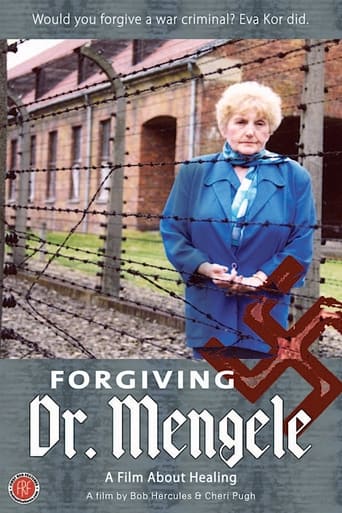


Forgiving Dr. Mengele
Eva Mozes Kor, who survived Josef Mengele's cruel twin experiments in the Auschwitz concentration camp, shocks other Holocaust survivors when she decides to forgive the perpetrators as a way of self-healing.
-
- Cast:


Similar titles


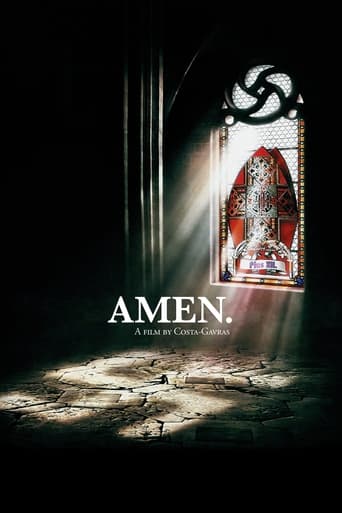
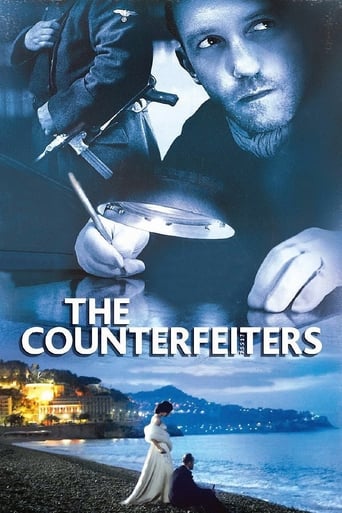
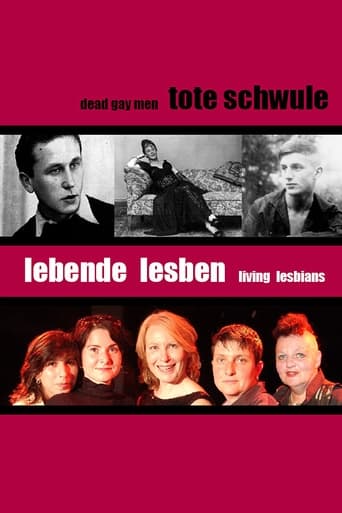
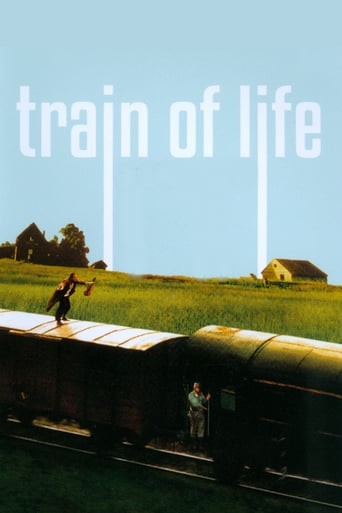
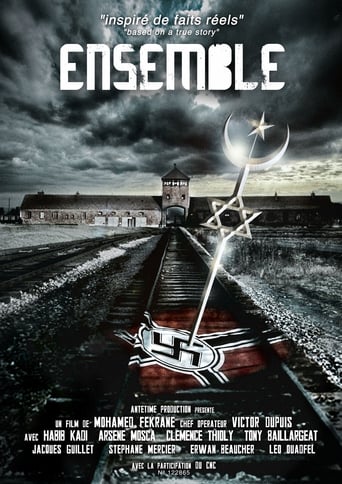
Reviews
It's fun, it's light, [but] it has a hard time when its tries to get heavy.
The story, direction, characters, and writing/dialogue is akin to taking a tranquilizer shot to the neck, but everything else was so well done.
One of the most extraordinary films you will see this year. Take that as you want.
Strong acting helps the film overcome an uncertain premise and create characters that hold our attention absolutely.
It is so one sided that the other sides be it German or Arabs are totally ignored. The protagonist is so busy playing the role of victim and giving her own definition to the word "Forgiving" that she cannot even listen to how others (other holocaust survivors) feel. She has her own ideas about forgiveness which are totally self serving and the moment she sits with the Palestinian representatives the first thing she says is that she'd rather be in her bed in the hotel> As they tell her about the Israeli atrocities she literally tells them that she doesn't wish to hear their stories as they make her uncomfortable. She is very happy and empowered playing the role of victim and then self proclaimed "Forgiver". But when she is faced by her own race's atrocities she turns into a complete Nazi. It is so obvious in her mannerism and body language. The docu-drama is nothing but self-publicity and self promotion totally ignoring the feelings and facts presented by others.
The first half of this documentary is very strange, mostly focusing on Eva's life flashing back and forth with scenes of Auschwitz, like a demented version of Kubrick's famous 2001 switcheroo. Although we do feel sympathetic for Eva by the 20 minute mark, having learned about her troubled adulthood in a world where the Holocaust was silently passed over, the directing is almost too kitschy and weird to be a Holocaust documentary. It was not pleasant viewing.The film picks up around the 25 minute mark when Eva's quest to raise awareness of the Holocaust takes an unexpected turn. She does not only want guilt and shame, she wants the Germans to know her forgiveness. We hear some fascinating debates, but only for a few minutes. Perhaps the directors didn't want to bore us with real conflict and debate.Midway through, and again all too briefly, we get to see a real treat: a one-room Holocaust "museum" built not with government dollars and NGO support, but by and for a single woman who wanted people in her small town to know her story. With this you start to understand the real meaning and importance of Holocaust education for ordinary people. But this segment ends abruptly.Then, two unrelated segments. First, Eva's own capacity to listen and forgive is given a test when she meets with Palestinians. Here, she does not come off as very compassionate at all. This was hard to watch, and again, not pleasant. Finally, inexplicably, Eva's museum is burned down in an act of arson. This is also dealt with all too briefly. We don't see the museum being rebuilt or a new plan being drawn up -- but a new museum does appear for a split-second shot.All in all, an uneven and unsatisfying film, that introduces us to an independent thinker, but doesn't seem to take her very seriously.It is never explained why Eva wears blue every day.
Eva Kor is the reason to see this film. She is charming, heroic, and a model of strength, determination, and love in action. She and others like her are living proof that evil's victories are always temporary.I was afraid to watch "Forgiving Dr. Mengele." Hitler was one of the most evil men who ever lived, but, as far as I know, Hitler didn't personally kill or torture anyone. Josef Mengele, on the other hand, used medical tools and procedures to torture innocent victims at Auschwitz. Mengele focused on children, and on twins. Mengele is the stuff of nightmares.I hesitated before popping the DVD in the machine. In combat, Mengele won the Iron Cross for rescuing two German soldiers from a burning tank. Retired from the front and sent to be "camp doctor" at Auschwitz, he destroyed countless innocent lives. After the war, Mengele escaped, with the support of many German and South American friends, and died a free civilian's natural, comfortable death in 1979. I began thinking about what kind of hell would be appropriate for a Josef Mengele. I wondered what he thought about before he went to sleep at night.Once the DVD began playing, I quickly realized that "Forgiving Dr. Mengele" isn't about Mengele at all. It's about Eva Kor, a delightful and inspirational human being. She's a real estate agent in Terre Haute, Indiana. Kor, a well-dressed senior citizen with a Mitteleuropa accent, is shown bustling about, hammering in lawn signs that advertise property for sale, guiding potential buyers, and making grilled cheese sandwiches for her two loving children and her husband in their modest suburban home. Kor is a woman of action, not reflection. In spite of her age, she moves like a bullet, directly toward her target. She acts, rather than sits and ponders. You know she loves her family because she feeds them. Her daughter describes Kor as "unhesitant," and the viewer agrees. Kor is shown giving inspirational speeches to school children, and opening up her own, small, Holocaust memorial museum. Kor and her twin sister Miriam were survivors of Mengele's torture.Kor met with a former Nazi doctor, Hans Munch. Munch had resisted Nazi commands to take part in selections that condemned prisoners to death. He also engaged in ruses to protect prisoners' lives; former prisoners testified to this after the war. Munch was acquitted of war crimes. In 1995, Kor and Munch together issued a statement condemning the Holocaust. Kor forgave Munch. Kor was asked if she could forgive Mengele. After much thought, she said she could. Kor was challenged and her stance was rejected by other survivors.The film shows Eva Kor at home, in schools, and at her museum. It shows her meeting with Munch and speaking with him at Auschwitz. The film also shows other twin survivors saying that they can't forgive Mengele. Finally, there is a brief, awkward and out-of-place meeting between Eva Kor and Muslim Arabs, lead by Sami Adwan. Kor appears to be the only Jew at the meeting. She is confronted by several Arabs who, while glaring at Kor with undisguised hate, proceed to tell her that Jews are responsible for all the problems in their lives, and that Jews never lived in Israel before 1945. They're wrong on all counts – they get both their facts wrong and their approach. It is simply distasteful to recruit an elderly, female, Holocaust survivor, get her alone in a room, and harangue her with blatant anti-Semitism. The film doesn't comment on this encounter. No conclusion is reached. One wonders why it was included.There are a few things I wish the film had done differently. I would have liked more background on Kor's biography. What was life like after she left the camp and returned to Romania? How did she travel to Israel, and then the US? Most importantly, I never understood Kor's definition of the word "forgiveness." What does it mean to forgive? What does it mean to forgive Mengele? If he were alive today, would Kor hope for legal proceedings against him? Is Kor's insistence on forgiveness rooted in any religious belief? The film records the destruction, by fire, of Kor's Terre Haute Holocaust Memorial Museum. No one has been caught – but are there no clues the filmmaker's can bring to the viewers' attention? My reservations are small. "Forgiving Dr. Mengele" is a moving, engaging, and inspirational film. Eva Kor's abundant life and her insistence on love make it so.
The documentary revolves around Eva Mozes Kor, a holocaust survivor, part of Mengele's experiments on twins, consisting primarily her version of what happened at Auschwitz, and a comparison of the emotions of the other survivors of the twin experiments. The movie obviously had great reviews. It's one of those topics that no one dares to voice a contrary opinion about.I too, for a large part of the movie, got sucked into the emotion that the movie-maker so obviously wanted the viewer to concentrate on. One of the user reviews on IMDb by Eric Monder (obviously having nothing critical to say about the issue on a public forum) could only find the sweetest nectar. "In one of the many dramatic sequences, as a group of Jews argue with Kor at a Jewish center, the meaning of the word "forgive" is even debated, but the isolated and outnumbered Kor holds her own" But by this time, the sappy hold that the movie had on my dormant emotional repertoire had let loose enough that I could see clearly once more. After the "strong-willed" Eva Kor forgives her "Nazi captors" the movie begins to delve into what forgiving is all about, at least from the viewpoint of Kor. The movie goes about following her, past her public statement forgiving the Nazis and into new territory. To me, this was the meat of the movie, surrounded by inedible fat of her "act of forgiveness". Obviously, it was a very sick cow.On a mission to test her theory of forgiveness, in order to heal wounds of the past, she makes her way to the "promised land" to meet with some Arabs, to discuss with them the issues that they face and to see if dialogue cannot lead to a better understanding of the situation and heavily interspersed with debates and discussions with Jews in the US on her act of forgiving the Nazis, including one at a Jewish center in Chicago. From then on, anyone not so teary eyed that they can't see the screen will find it hard-pressed to miss the obvious contradiction in her statements.Firstly, you immediately notice her body language, defensive and unwilling to listen in a room full of Arab scholars and teachers. Her comments about how she feared that they might kidnap her shows how much of a waste of time, effort and money the entire act was. A rather annoyed Dr Sami Advan (Professor of education at Bethlehem University) gets it just right when he tells Kor off for a statement she makes about how she would rather be asleep in her apartment.Finally, the debate at the Jewish center in Chicago, where she is "grilled" on the meaning of forgiveness and her right to do so, in the wake of those that continue suffering through the trauma of the acts.I will cut to the chase. By the end of the movie, I was hoping I hadn't chosen to watch the movie. The movie was badly made, failing to delve deeper into anything about Auschwitz apart from the purely trivial, just sufficient to make sure the holocaust is refreshed in the viewers memory and to incite a barrage of tears. It showed that Kor, the subject of the documentary was unable to engage in fair discussion. Her discussion abilities were limited to parroting her stance on forgiveness (at best) to a complete unwillingness to listen or participate.Lastly, is everyone so retarded today that they can't notice the difference between making peace and forgiving? Quoting another IMDb user, "I don't see her forgiveness as being weak- quite the contrary, she just wanted to relieve its hold from her soul, she wanted the suffering to be over, so she let it go." That would be the perfect layman's definition of MAKING PEACE.I guess, in a world of propaganda, blind faith and political correctness, there is no room to question those that have "gone through more than the human mind can fathom".P.S. The dictionary certainly should go into all those Books-to-buy lists everyone keeps making.
